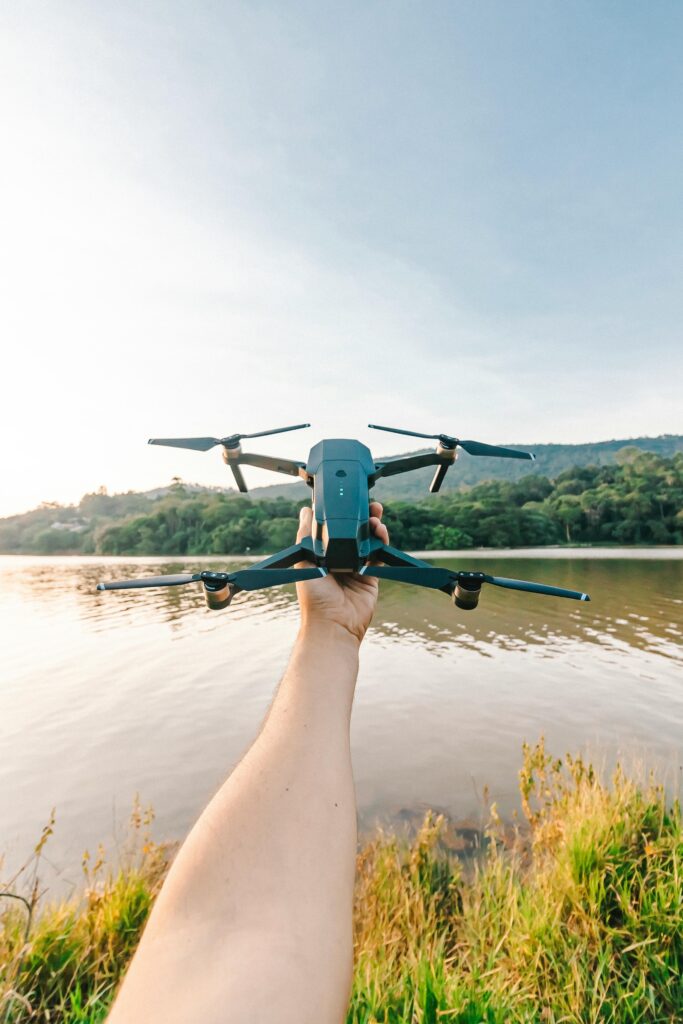What Are The Regulations For Flying Drones In The U.S.?
Are you curious about the regulations surrounding drone flights in the United States? Let’s break down the rules and guidelines to ensure you fly your drone safely and legally.

Registering Your Drone
Before you take to the skies with your drone, it’s essential to register it with the Federal Aviation Administration (FAA). Any drone that weighs between 0.55 pounds and 55 pounds needs to be registered. You’ll need to provide your name, physical address, and email address to complete the registration process.
It is the responsibility of every drone pilot to register their aircraft, regardless of whether it’s for recreational or commercial use. Failure to register your drone can result in significant fines, so be sure to complete this step before taking your drone for a flight.
Flying Restrictions
When flying your drone in the U.S., there are several restrictions and regulations to keep in mind. Firstly, drones must weigh less than 55 pounds unless otherwise approved by the FAA. Additionally, drones should always be flown below 400 feet in altitude and remain within your line of sight.
By adhering to these flying restrictions, you can ensure the safety of yourself and others while operating your drone. Remember, violating these rules can result in fines or legal consequences, so it’s essential to fly responsibly.
Restricted Airspace
Certain areas in the U.S. are designated as restricted airspace, where drone flights are prohibited. These areas include airports, military installations, and national parks. Before flying your drone, check for any restricted airspace in your vicinity to avoid potential conflicts.
If you plan on flying in controlled airspace, such as near an airport, you will need to obtain authorization from the FAA. This process typically involves submitting a request through the FAA’s online system and receiving approval before proceeding with your flight.
Privacy Considerations
When flying a drone, it’s crucial to respect the privacy of others and avoid infringing on their rights. Avoid flying your drone over private property without obtaining permission from the landowner. Additionally, refrain from capturing images or videos of individuals without their consent.
By being mindful of privacy considerations, you can avoid potential legal issues and conflicts with others in your community. Remember, respecting the privacy of others is essential when operating a drone in the U.S.
Safety Tips
To ensure the safe operation of your drone, here are some essential safety tips to keep in mind:
- Always perform a pre-flight check to ensure your drone is in good working condition.
- Be aware of weather conditions and avoid flying in high winds or inclement weather.
- Maintain a safe distance from people, buildings, and other obstacles while flying your drone.
- Never fly your drone over crowds or busy public areas.
- Keep your drone within your line of sight at all times to maintain control and avoid accidents.
By following these safety tips, you can minimize the risk of accidents and ensure a safe and enjoyable drone flying experience.

Commercial Drone Operations
If you plan on using your drone for commercial purposes, such as aerial photography or surveying, there are additional regulations you need to follow. Commercial drone operators are required to obtain a Remote Pilot Certificate from the FAA, which involves passing a knowledge test on drone regulations and safety practices.
Commercial drone operators must also adhere to specific guidelines, such as obtaining a waiver for certain flight restrictions and following commercial drone flight regulations. By obtaining the necessary certifications and permissions, you can legally operate your drone for commercial purposes in the U.S.
Part 107 Regulations
Under Part 107 of the Federal Aviation Regulations, commercial drone operators must comply with the following regulations:
- Fly during daylight hours or civil twilight with appropriate lighting.
- Keep your drone within visual line of sight at all times.
- Yield the right of way to manned aircraft.
- Do not fly over people or moving vehicles.
By following these regulations and guidelines, commercial drone operators can safely and legally conduct their operations in compliance with FAA regulations.
Drone Registration Fees
When registering your drone with the FAA, you will need to pay a registration fee to complete the process. The registration fee for recreational drone operators is $5, and the registration is valid for three years from the date of issuance. Commercial drone operators may also need to pay additional fees for obtaining a Remote Pilot Certificate and other necessary certifications.
These registration fees help fund the FAA’s efforts to regulate and oversee drone operations in the U.S. By paying the required fees, you can ensure compliance with FAA regulations and contribute to the safe integration of drones into the national airspace.
Renewing Your Registration
After three years, you will need to renew your drone registration to continue operating your drone legally. The renewal process involves updating your registration information and paying the applicable fees to maintain your registration status. Failure to renew your drone registration can result in fines or legal consequences, so be sure to stay up to date with your registration status.

Resources for Drone Operators
For drone operators looking to expand their knowledge and stay informed about the latest regulations, there are several resources available to help you navigate the world of drone flying. The FAA’s website features a wealth of information on drone regulations, safety guidelines, and certification requirements for both recreational and commercial operators.
Additionally, online forums and communities dedicated to drone enthusiasts can provide valuable insights and tips on flying drones safely and responsibly. By connecting with other drone operators and sharing experiences, you can enhance your skills and knowledge in the world of drone flying.
FAA DroneZone
The FAA DroneZone is an online portal where drone operators can register their aircraft, apply for waivers, and access resources on drone regulations. By utilizing the FAA DroneZone, you can streamline the registration process and stay informed about any updates or changes to drone regulations in the U.S.
Local Flying Clubs
Joining a local flying club or organization can be a great way to connect with other drone enthusiasts and participate in group flying activities. Flying clubs often host events, workshops, and training sessions to help members improve their piloting skills and stay informed about the latest drone technologies.
Whether you’re a novice drone pilot or an experienced operator, participating in local flying clubs can provide valuable networking opportunities and support from fellow drone enthusiasts. By engaging with the drone community, you can enhance your flying experience and learn from others in the field.
Conclusion
Navigating the regulations for flying drones in the U.S. can seem overwhelming, but by following the guidelines and safety tips outlined in this article, you can ensure a smooth and legal drone flying experience. Remember to register your drone with the FAA, adhere to flight restrictions, respect privacy considerations, and follow safety guidelines to operate your drone responsibly.
Whether you’re flying for recreation or commercial purposes, it’s essential to stay informed about the latest regulations and guidelines to fly your drone safely and legally in the U.S. By complying with FAA regulations and best practices, you can enjoy the thrill of drone flying while prioritizing safety and responsibility.
